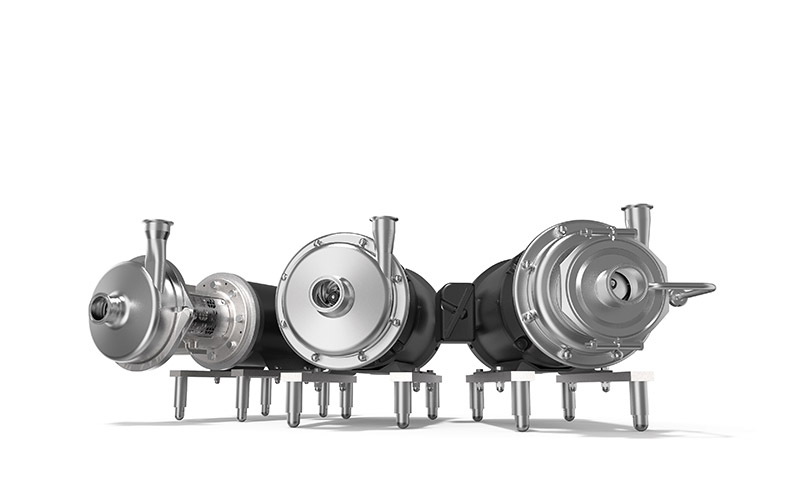Go West! GEA hygienic centrifugal pumps launch in USA
A tough market, according to GEA experts Martin Zickler and Dave Medlar, where it is better to start planning from the back in order to make everything right from the beginning. That’s why they first built up the service network and a local assembly and then made a promise…

A tough market, according to GEA experts Martin Zickler and Dave Medlar, where it is better to start planning from the back in order to make everything right from the beginning. That’s why they first built up the service network and a local assembly and then made a promise: GEA pumps will bring a new level of quality, efficiency and hygiene to the US dairy, pharmaceutical, food and beverage markets.
GEA acquired Hilge, a leading German pump manufacturer, in June 2015. Since then the company has been integrated into GEA and has benefitted from its engineering experience and global network of customers, suppliers and agents. Now that the pumps have received 3-A certification, the time is right to meet the US market head on.
Martin Zickler is the product manager for hygienic pumps, based in Germany. He worked with Hilge before the GEA acquisition. “The old company had no footprint in the USA,” he said. “But now that we have the backing of GEA and a comprehensive service and distribution network in the country, we are ready to take on the challenge.”
Michael Brandt is the business development manager charged with the job of making the US launch a success. He said that he had never had any doubts about the quality of the pumps and the opportunities for them in the US, but he had to make sure that the service and support structure was up to American standards before introducing them to the market.
Get ahead by looking back
“GEA pumps are strong, reliable workhorses but, for the American market, service is critical,” he explained. “We need to be able to respond quickly to our customers and provide a fast spares service. We also needed a reliable distribution network as customers need to know that if they require assistance, they can get the relevant expertise quickly.”
Dave Medlar, head of sales valves & pumps USA and his team have been working hard to get the support network in place before the product launch. “Of course, providing excellent service is always work in progress but I am now confident that we are ready,” he said. “We have a global reputation to maintain; when people buy a GEA product, they know it’s going to be supported well, also during the entire service life of a pump.”
Hygienic approach becomes a must-have
The GEA centrifugal pumps have a unique impeller design that sets them apart from normal centrifugal pumps. “We have pushed the impeller towards the front making it more efficient and the mechanical seal easier to cool. It mimics a closed impeller but can still be used in the pharmaceutical industry and wherever sanitary conditions are required,” said Martin. “This means the pump is easier to clean and can handle a much wider range of liquids.”
In addition, GEA pump housings are manufactured by deep drawing, not casting. This provides a much higher quality surface finish without blow holes in which bacteria can collect. Although this has been a feature demanded largely by the pharmaceutical industry in the past, the food and beverage market is increasingly requiring a more hygienic approach throughout all aspects of its production.
Engineering excellence that allows customization
Although the product’s unique features are impressive, and it has a great reputation for reliability, Michael sees an even stronger sales proposition in the engineering experience of the GEA group. “It’s like an engineer’s toolbox,” he said. “We know that all applications are different and it’s flexibility that our customers need. Because we are engineers, not just suppliers of components, we can adapt the pumps to fit virtually any application. This might include, for example, different fittings or mountings, a more robust design or even providing the pump on a trolley. We look at the application, then work out what the customer needs are.”









